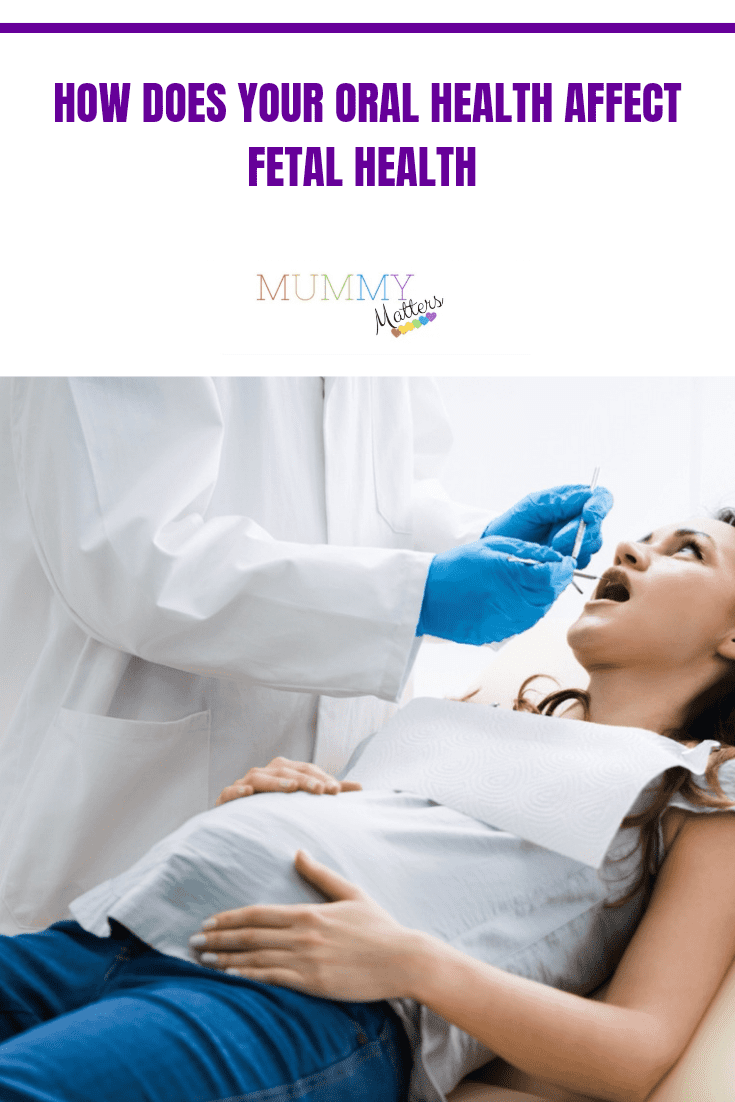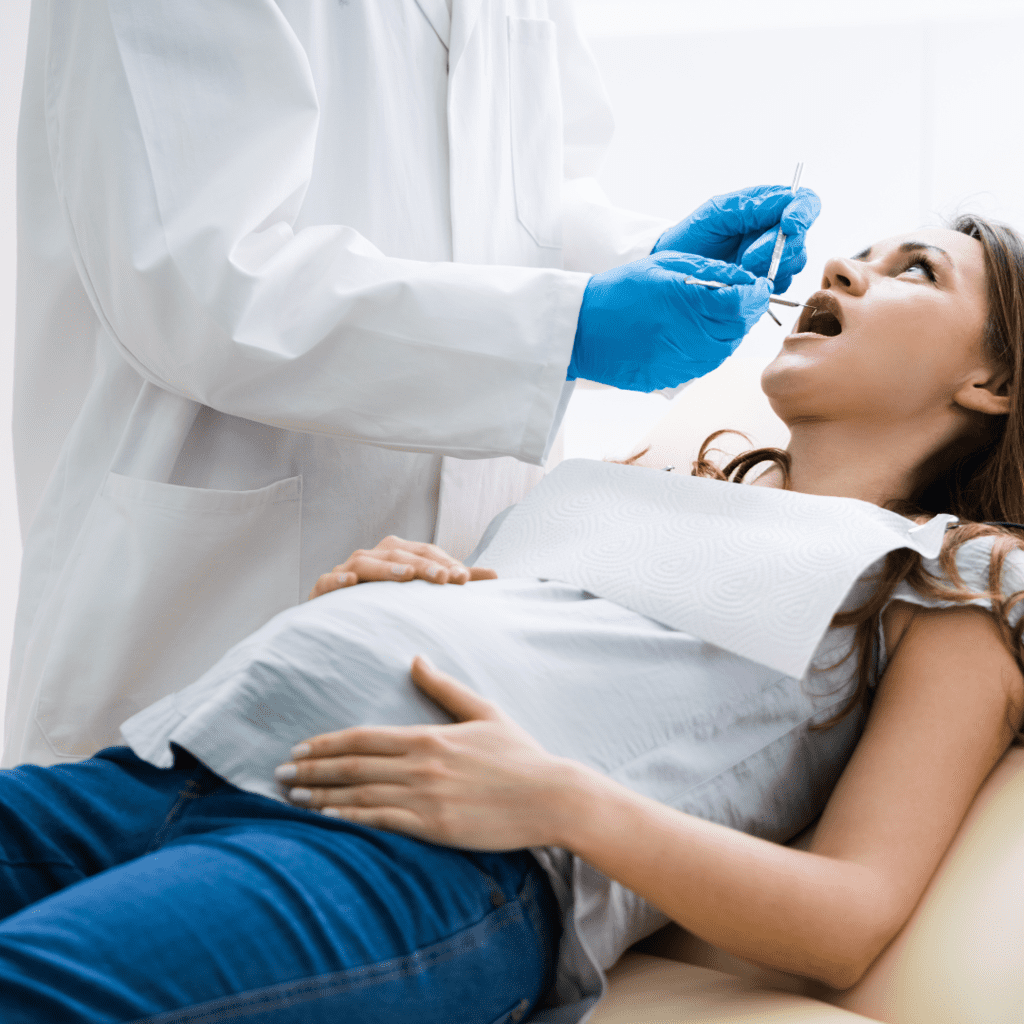Pregnancy changes your body and releases hormones that make you susceptible to oral health problems. Unfortunately, these problems can affect your fetus, causing problems even after they are born.
Kindly read further to find out how oral health affects your fetus and how to preserve your oral health.
How Does Dental Health Affect Pregnancy?

Your oral health is the health of your teeth, gums, and mouth. During pregnancy, it is essential to get prenatal care. And dental care is part of prenatal care.
During pregnancy, your risk of developing oral health problems increases. And these problems can affect your fetus. For instance, studies show that gum disease can cause premature birth and low birth weight in babies. In addition, babies born prematurely have an increased risk of developing brain injury and hearing and sight problems. But with proper dental care, your dentist can treat gum disease.
Furthermore, pregnant women with excessive bacteria growth in their mouths can pass these bacteria to their fetuses and newborns.
How Does Pregnancy Affect Dental Health?
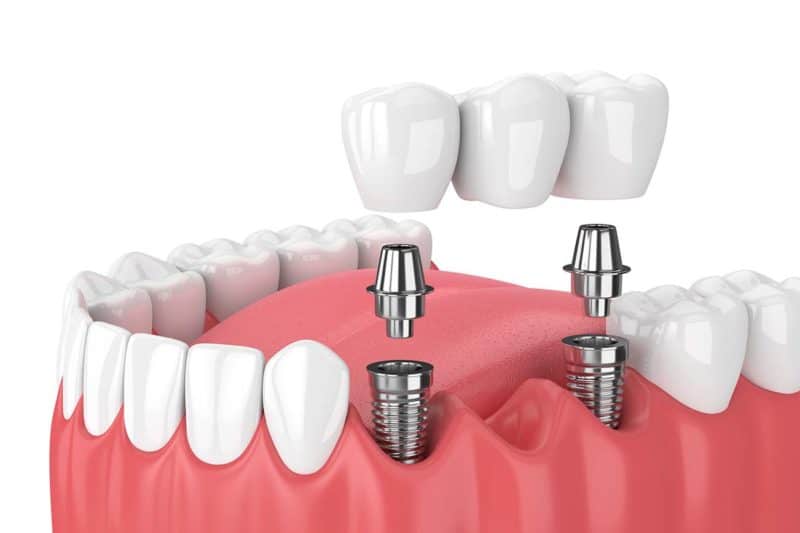
Your body, including your mouth, experiences changes during pregnancy. Pregnancy increases hormones like progesterone and estrogen, increasing the risk of oral health problems. Furthermore, you tend to eat certain foods that cause oral health problems because of cravings.
Another way pregnancy affects dental health is that brushing and flossing may cause nausea in some women. Therefore, some expecting mothers reduce how often they observe oral hygiene, leading to oral health problems.
Dental health problems that may arise due to pregnancy include;
Cavities
Cavities, also known as tooth decay, occur when the teeth are damaged. Consuming sugary foods increases the risk of your tooth decaying during pregnancy. Unfortunately, tooth decay-causing bacteria can cause cavities in your fetus, even after birth.
Gingivitis
Gingivitis is also known as gum inflammation, and its symptoms include swollen and red gums. Without proper treatment, gingivitis can further lead to severe gum disease. You may have gingivitis if you have shiny, tender, or bleeding gums during pregnancy.
Loose teeth
The increased hormones in your body can temporarily loosen the tissues holding your teeth in place. Therefore, pregnant women are likely to experience loose teeth.
Periodontal disease
Periodontal diseases occur as a result of untreated gum disease. This disease is present as a gum infection. Periodontitis can leak bacteria into the bloodstream and affect the fetus.
Tooth erosion
Vomiting from morning sickness deposits stomach acid in the mouth. The acid then wears down the tooth enamel, eroding the teeth. Morning sickness is usually prevalent in the first trimester of pregnancy.
Symptoms Of Dental Problems During Pregnancy
Promptly treating dental health problems is essential in preserving your baby’s health. If you notice any symptoms, contact your dentist immediately for prompt treatment. Symptoms of oral health problems in pregnancy include;
- Loose teeth
- Bad breath
- Teeth gaps
- Receding gums
- Toothache
- Red, swollen, or shiny gums
- Bleeding gums, even when you brush gently
How To Prevent Oral Health Problems In Pregnancy
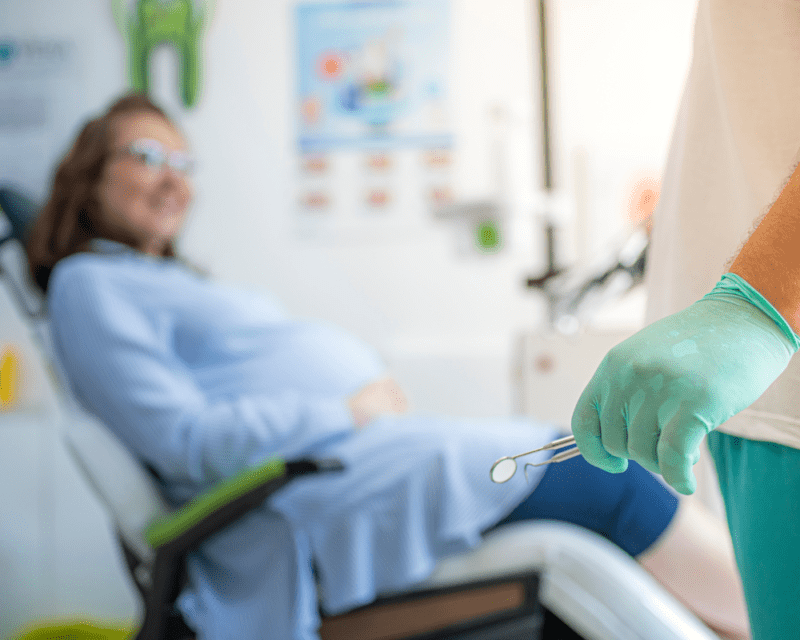
Dental checkups
Dental checkups help a dentist detect problems and treat them promptly. This is also the case during pregnancy. Therefore, regularly visiting your dentist is essential when you are pregnant.
Oral hygiene
Observe regular oral hygiene. Using fluoride toothpaste to brush your teeth twice daily and floss them once daily is excellent for preserving oral health. Use a toothbrush with soft bristles instead.
Mouth rinse
Rinse your mouth with baking soda solution. Morning sickness makes you vomit, bringing stomach acids to the mouth. To warm water, you can neutralise these acids by rinsing your mouth with a baking soda solution with a teaspoon of baking soda. If you cannot brush due to morning sickness, rinse your mouth with the solution. Then wait 30 minutes before brushing.
Balanced diet
Eat a balanced diet. Although cravings are expected during pregnancy, limit your consumption of sugary foods and drinks. Snacking on sugar-rich foods increases your susceptibility to tooth decay. Instead, focus on eating fruit, vegetable-rich diet and nutrition with low added sugar. Furthermore, rinse your mouth with fluoride mouthwash after consuming sugary foods.
Vitamin intake
Increase your calcium intake. Calcium protects you and your baby’s bones. Good calcium sources include milk, cheese, almonds, and sugar-free yoghurt. Another necessary supplement in pregnancy is vitamin D. Small amounts of sun exposure, eggs, fatty fish, and margarine are excellent sources of vitamin D.
Control plaque
If you are experiencing plaque buildup during pregnancy, it is best to discuss it with your dentist. Your dentist may recommend an antimicrobial mouthwash that can help control the buildup.
How Do Dentists Treat Oral Health Problems In Pregnancy?
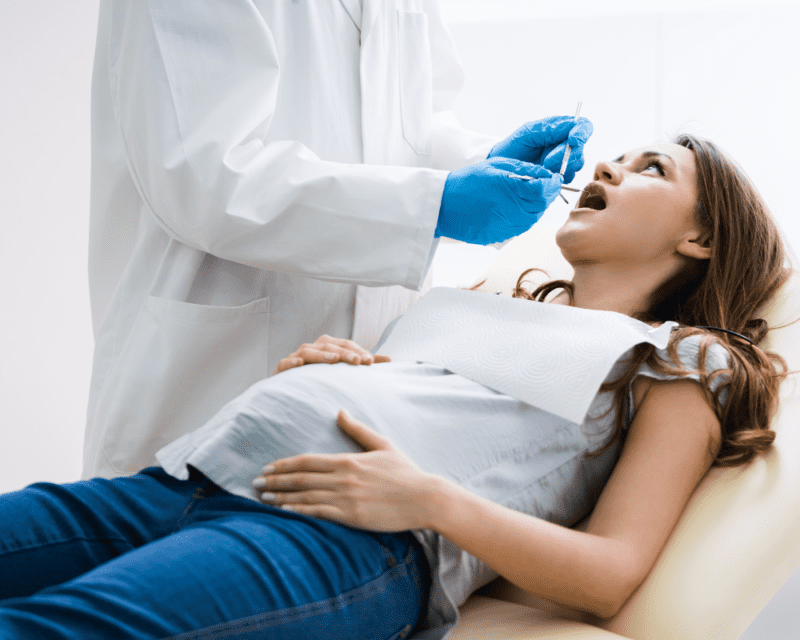
Dentists at Dentakay do not carry out invasive procedures like dental implants during the first trimester of pregnancy. Instead, they carry out procedures safe for both mother and child. For example, your dentist may administer local anaesthesia for dental filling or tooth extraction procedures. Local anaesthesia is safe during pregnancy.
Another treatment method is administering medicines like pain relievers and antibiotics. But it’s important to remember that not all drugs are safe during pregnancy. Therefore, it is best to always consult your dentist before taking any medicine.
Can You Get An X-Ray During Pregnancy?
Dental x-rays help dentists detect oral health problems. Unfortunately, X-ray radiation may harm your fetus, especially during the first trimester. Therefore ensure you tell your dentist if you are pregnant or planning on becoming pregnant.
Generally, dentists usually carry out dental x-rays during your second trimester. So, when getting x-rays, your dentist will cover you with an apron to protect you and your baby from radiation.
Conclusion
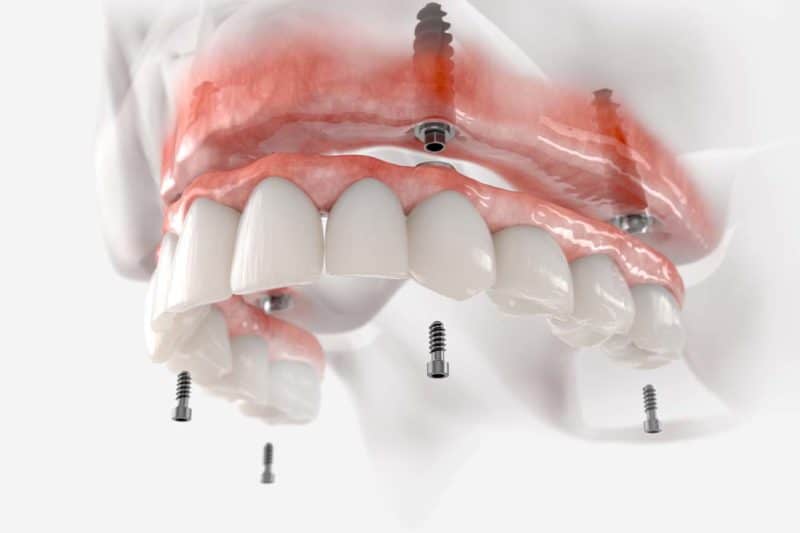
Your oral health significantly affects your fetus. For example, gum disease can introduce bacteria into the bloodstream and cause premature birth or low birth weight in infants. Therefore, it is best to have good oral hygiene and visit your dentist regularly to protect yourself and your baby.
Reference websites:
https://www.ncbi.nlm.nih.gov/pmc/articles/PMC5357921/
